The week ahead in Parliament
- Published
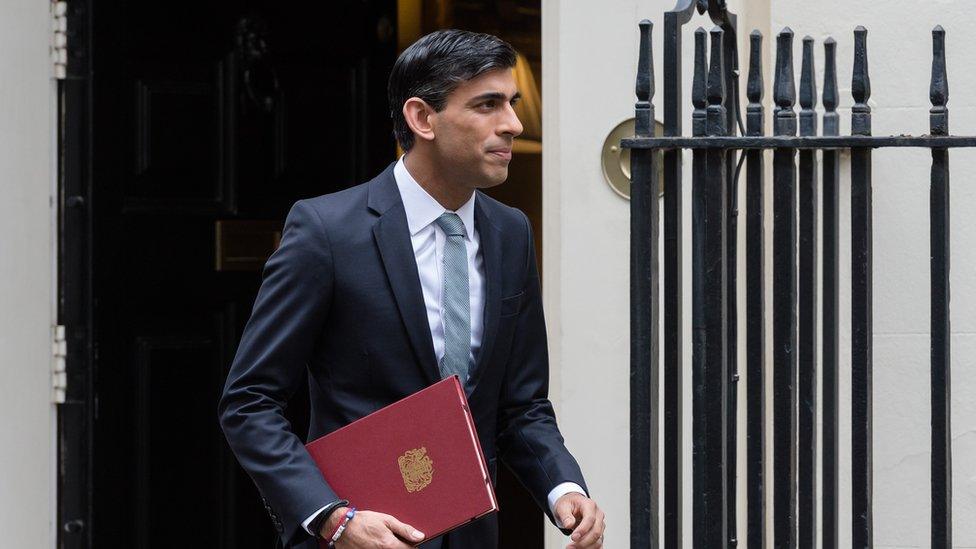
Rishi Sunak is set to deliver his second Budget as chancellor on Wednesday
The contents may be controversial, there may be talk of backbench rebellions and attempts to rewrite the proposals.
But when Parliament plunges into the procedural thicket that is the Budget, the legion of new MPs will discover it's much more difficult than they might imagine.
First off, you don't amend the Budget, you amend the subsequent legislation, the Finance Bill.
Second, the procedural mechanisms around it make that a rather baffling task. What MPs actually debate in the Budget debate is a series of resolutions on which the Finance Bill is brought in.
Typically, they describe the scope of the bill, and only the first one can be amended - and it is normally drafted in such a way as to make amendment a practical impossibility.
What MPs don't therefore get is an early opportunity to say "we want to do something different" with, say, corporation tax.
The opportunity to try and make changes comes with the Finance Bill, and the thing to watch there is which clauses are allocated for debate in Committee of the Whole House, and which are sent upstairs to the bill committee.
Budget peculiarities
Since the improbable 1970s alliance of Labour rebels Jeff Rooker and Audrey Wise, with the Conservatives under Nigel Lawson, which pushed through the index-linking of tax thresholds (very significant in those high inflation days), the government whips have been very wary of putting awkward squad backbenchers into a Finance Bill committee.
So any major action would probably have to take place on the floor of the House. The Labour whips will doubtless be seeking to force votes on aspects of the chancellor's plans that displease Tory backbenchers.
Keep an eye on backbenchers like Robert Halfon, who has led campaigns against increases in fuel duty for a decade, and the formidable duo of Andrew Mitchell and Dame Margaret Hodge, who will doubtless continue their long-running campaign for a register of the beneficial ownership of assets in the UK, and its dependent territories, to combat money laundering.
There are other peculiarities to the Budget debate.
The proceedings are chaired by the senior deputy speaker, Dame Eleanor Laing, as Chairman of Ways and Means. This tradition dates back to the 17th Century, when the Speaker was considered a stooge of the Crown, and MPs preferred to have debates on taxation chaired by someone else.
Test for Starmer
Dame Eleanor, incidentally, has a special role: before the chancellor begins, she is presented with a sealed envelope containing the resolutions to be moved immediately - these are any increases in duties on alcohol, cigarettes, or even fuel, that might be proposed.
But there's no peeking, and absolutely no pre-emptive lunchtime trips to the off-licence.
The chancellor delivers his statement, and then the Leader of the Opposition responds.
Saying something coherent about this massive and complex package of measures is probably the single toughest gig in the parliamentary year, so it will be a considerable test of Sir Keir Starmer's parliamentary abilities. The shadow chancellor gets her chance to respond the next day, when she opens the next stage of the Budget debate.
The debate lasts for four sitting days, concluding on Tuesday 9 March, and there's some attempt to give each day a theme, with particular cabinet ministers and their shadows opening, but MPs don't have to stick to those themes, so it's all a bit amorphous.
Meanwhile, in the House of Lords, a new plotline has emerged with the decisions of the veteran ex-health secretary, Lord Fowler, to quit the Woolsack early. Watch out for open auditioning by would-be successors.
Here's my rundown of the week ahead:
Monday 1 March
The Commons opens (14:30 GMT) with an hour of Education questions, and, as ever, that is likely to be followed by any post-weekend government statements or urgent questions (it's often a sign that something may be dropped into the agenda at the last minute, when the main business looks quite light).
In this case, the main business is a series of statutory instruments, secondary legislation to implement policies.
There's also a slot on the agenda set aside for Lords amendments. I think this may be for the Ministerial and other Maternity Allowances Bill, where there have been amendments to change "person" to "woman."
The adjournment debate sees Labour's Stephen Morgan hammering away at one of his party's major themes, the protection of leaseholders from fire safety remediation costs.
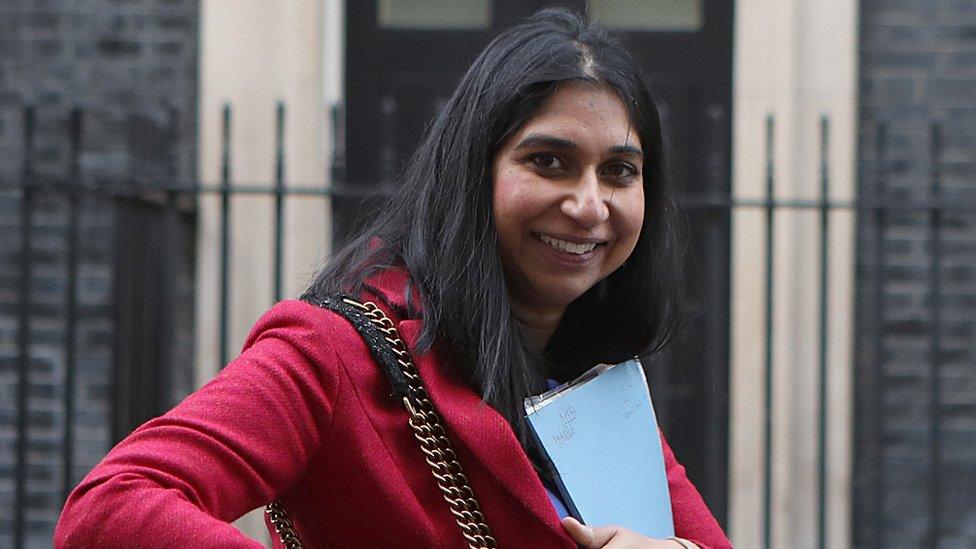
The bill was introduced to allow Attorney-General Suella Braverman to take maternity leave without having to quit office
On the committee corridor, Housing, Communities and Local Government (16:00) has a follow-up session on the post-Grenfell drive to remove flammable cladding from tower blocks, with witnesses from the Association of Residential Managing Agents, the UK Cladding Action Group and the National Housing Federation giving their view of the government's latest proposals.
Petitions has an evidence hearing on an online petition on TV licensing (16:30). In formal terms, these are select committee sessions, but in effect they're mini-Westminster Hall debates. The star turn is Culture Minister John Whittingdale.
Treasury (15:30) hears further evidence on The Financial Conduct Authority's regulation of the collapsed company, London Capital & Finance, from the top brass at the FCA, Chief Executive Nikhil Rathi and Chairman Charles Randell.
In the Lords (13:00) proceedings open with the introduction of two new peers, Baroness Chapman of Darlington, the former Labour MP Jenny Chapman, who lost her seat in the 2019 general election, and Lord Etherton, the former Master of the Rolls and Head of Civil Justice, who was the second most senior judge in England and Wales from 2016 to 2021.
Then, ministers face questions on allowing cadet forces to resume their activities, domestic energy efficiency and conducting relations with the US government "on the basis of sovereign equality".
Then peers polish off the relatively uncontroversial Non-Domestic Rating (Lists) (No. 2) Bill.
Peers will also debate the Health Protection (Coronavirus, Restrictions) (All Tiers and Self-Isolation) (England) (Amendment) Regulations 2021, which, among other things, bring in a new fixed penalty notice for attending a gathering of more than 15 people in a private home or educational setting, or in an indoor rave.
The penalty for a first offence will be £800 (£400 if paid within 14 days) but doubles for each successive offence, to a maximum of £6,400.
Tuesday 2 March
The Commons begins (11:30) with Foreign Office questions.
The day's ten-minute rule bill, from Conservative MP Duncan Baker, aims to require high street banks to provide basic banking services through the 11,500-strong Post Office branch network, as a way of compensating for the loss of 14,000 bank branches since 1988.
This would replace a voluntary and, he says, unsatisfactory arrangement, and provide much better security for communities. The bill is supported by a range of backbenchers, the Post Office and the National Federation of Sub Postmasters.
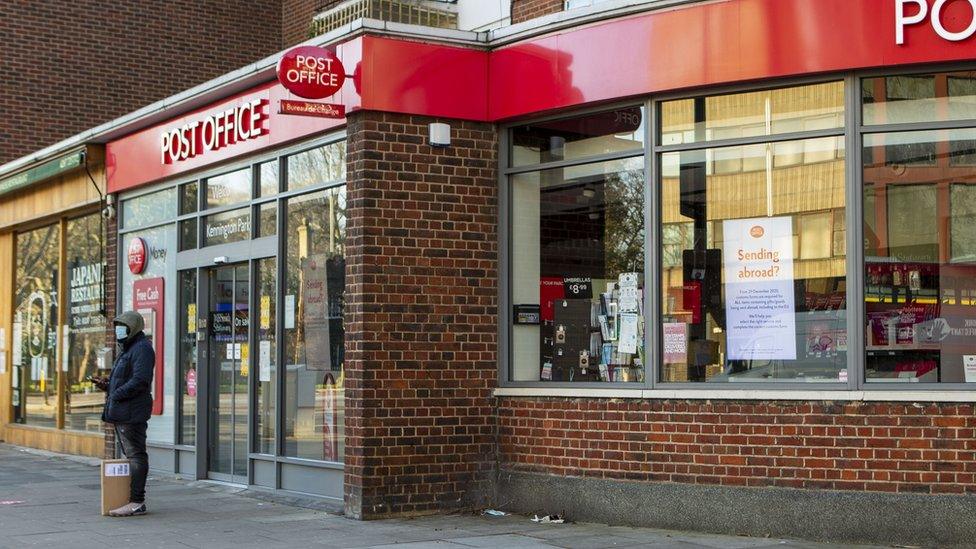
Mr Baker wants banks to deliver more services through Post Offices
Then, MPs debate a 0.5 per cent increase in compensation payments to pneumoconiosis sufferers, and lump-sum payments to mesothelioma sufferers.
That is followed by a general debate on Covid-19 and the cultural and entertainment sectors.
It's a busy day on the virtual committee corridor, with Education (10:00) focussing on the impact of Covid on education and children's services.
Environment, Food and Rural Affairs (14:30) hears evidence on fish and meat exports to the EU from Seafood Scotland, the Shellfish Association of Great Britain, the British Meat Processors Association, the National Pig Association and the National Sheep Association.
Foreign Affairs (14:30) continues its hearings on the Xinjiang detention camps in China, with witnesses from the Australian Strategic Policy Institute, Anti-Slavery International and Human Rights Watch.
In the Lords (12:00), the action begins with the introduction of Lord Khan of Burnley, Wajid Khan, a former Labour MEP for North West England.
Questions range across supporting the economy of Anglesey following Horizon Nuclear Power's decision to drop is bid to build a power station there, the financing of Transport for London, and a redress scheme for women and families harmed by sodium valproate following the Independent Medicines and Medical Devices Safety Review.
Then, peers debate two important statutory instruments.
The first deals with the powers of UK Border Force officials operating ("juxtaposed") in ports in France, Belgium and the Netherlands. This order would give them the power to use reasonable force, to enforce compliance with UK immigration controls.
The second aims to prevent people from travelling to or from the UK, for security reasons.
Since the system began, in 2015, the Home Office has refused authority to carry around 8,000 individuals into the UK. The 2015 scheme has a sunset clause, meaning that it would cease to have effect from April 2022, and a replacement scheme has been fast-tracked because of Brexit.
Wednesday 3 March
A momentous Commons day begins (11:30) with half an hour of Northern Ireland questions, followed, at noon by Prime Minister's Question Time.
(There is no ten-minute rule bill - the legacy of an eruption by Alex Salmond before a 1980s budget, which led to a rule change.)
Then comes the day's main event, the 2021 Budget, from Chancellor Rishi Sunak. This kicks off a series of themed debates, in the following days, on the contents of the statement, extending into the following week.
The importance of the Budget means that there is no significant committee business clashing with it. But Transport (09:30) does have a session on the post-Covid future of the aviation sector, with Aviation Minister Robert Courts.
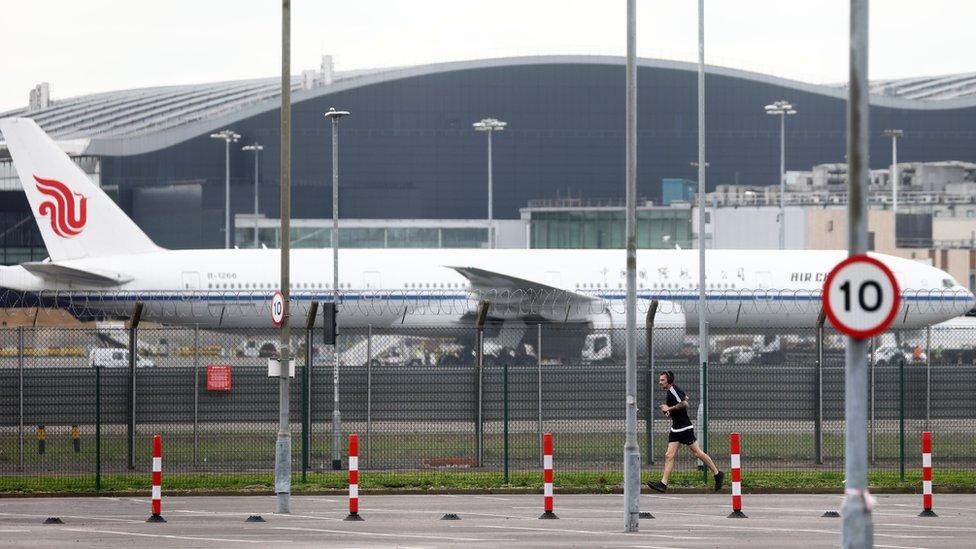
The aviation sector has been hit hard by travel bans and other restrictions during the pandemic
In the Lords (12:00), questions cover a report by accountants KPMG into loans to Northampton Town Football Club from the local council, the timetable for refugee resettlements under the UK Resettlement Scheme, and how funding replacing EU grants in Wales will be administered.
The main legislative action is consideration of the detail of the Counter-Terrorism and Sentencing Bill - where there are plenty of amendments from legal heavyweights on the sentencing rules for terror offences.
Thursday 4 March
MPs begin (09:30) with forty minutes of questions to environment ministers, followed by mini-question times for the MPs who speak on behalf of the Church Commissioners, the House of Commons Commission, the Parliamentary Works Sponsor Body, Public Accounts Commission and Speaker's Committee on the Electoral Commission.
Business Questions to Commons leader Jacob Rees Mogg are followed by the continuation of the Budget debate.
The day's committee action sees Public Accounts (10:00) looking at the Industrial Strategy Challenge Fund.
In the Lords (12:00), there are questions to ministers on the use of British Board of Film Classifications ratings for user-generated content on video sharing platforms, and government discussions with UK fishing industry representatives during negotiations on the Brexit trade deal.
The main event is a series of statutory instruments designed to allow England's local elections to go ahead in May.
These could provide an opportunity to debate the row around the government's view on what kind of campaigning is permissible under Covid regulations.
Other parties fear this will not allow them a level playing field, particularly because the government has issued guidance that getting activists to post campaign literature is not allowed.
And there are also questions about whether party leaders should be allowed to make campaign visits.
Finally, peers consider Commons amendments to the Telecommunications Infrastructure (Leasehold Property) Bill.
Related topics
- Published25 February 2021
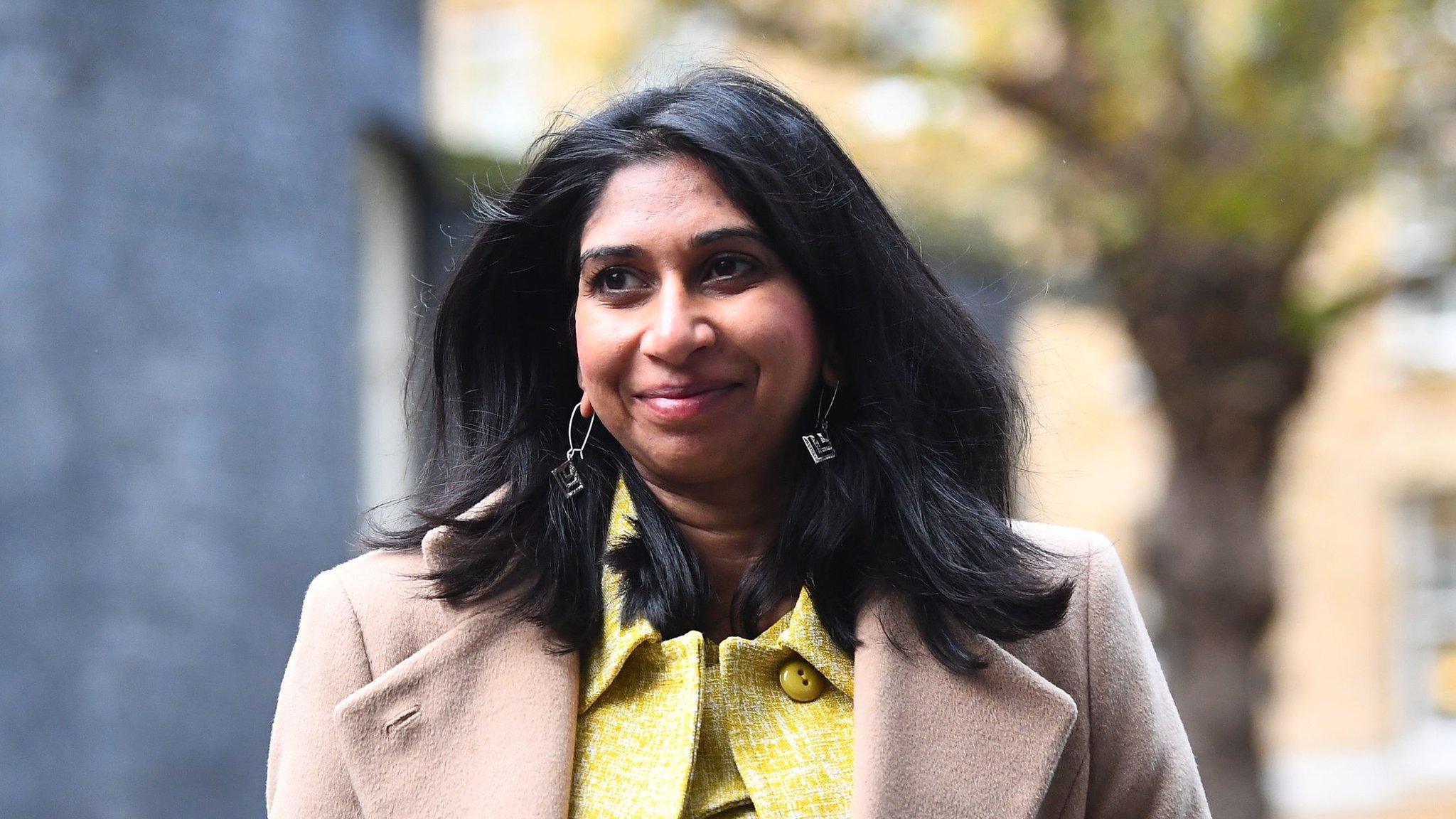
- Published19 February 2021
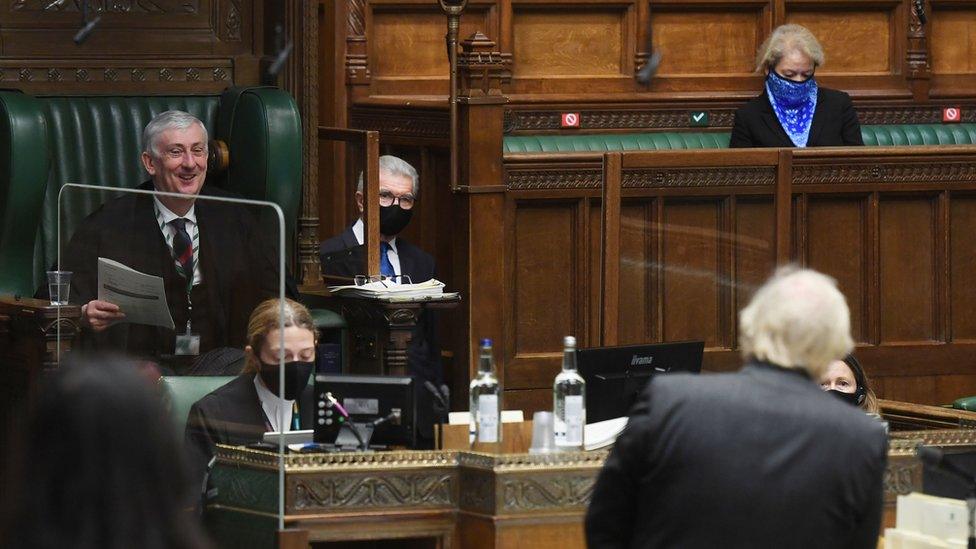
- Published26 February 2021
